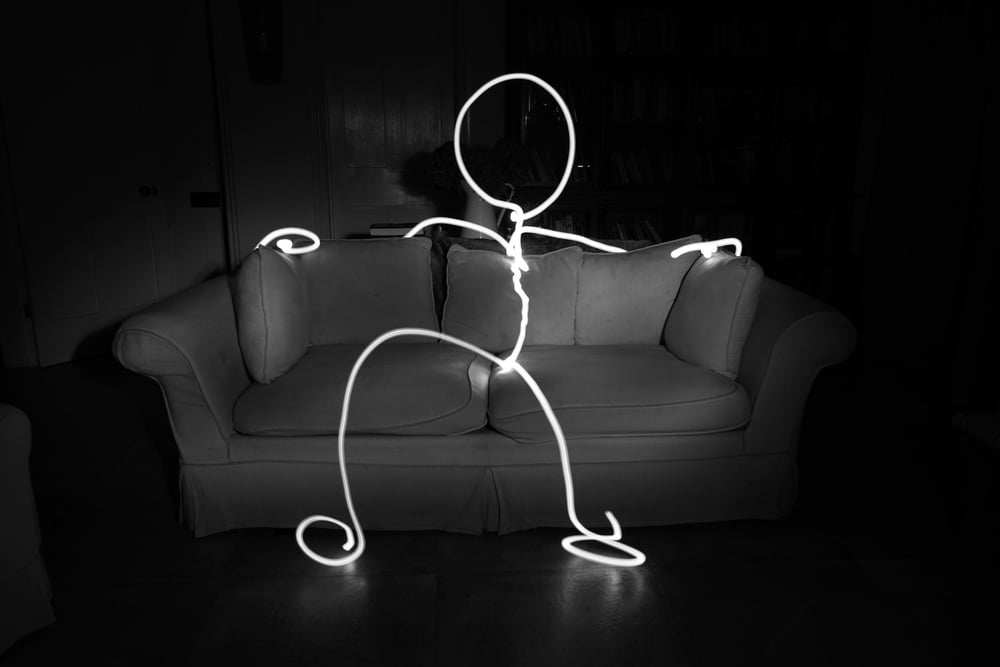Revising vs. Editing: What's the Difference?

When an author says they’re revising or editing their book, it usually means the same thing. These terms are used interchangeably in casual conversation, but is there actually a difference?
If a publisher or agent told you to revise your book, does that mean something different than if they told you to edit your book? Should you pay someone for revisions like you do for edits?
The distinction might mean more than you think. Or maybe you’re just interested. Either way, we’re getting to the bottom of this. In this article, we’ll discuss:
- The differences between revising and editing
- How to revise effectively
- What good editing looks like
When we’re done, not only will you know how to distinguish between the two terms, but you’ll also know the benefits that each process brings to your writing.
Revising vs. Editing
Before getting into the weeds, let’s take a high-level look at some of the differences between these two terms. Then we’ll break each one down so you know exactly what they can do for you.
What Are They?
Put simply, revising is making changes to the story, while editing is improving or fixing the story. Editing doesn’t occur until the story is, at least at a high level, what you want it to be.
When Do You Edit or Revise?
Both editing and revising take place after your draft is complete. In an ideal world, revisions will come before edits.
Who Does It?
One of the easiest ways to distinguish the two terms is to look at who performs each one.
Revising is done by you, the writer, in order to expand or fine-tune your draft. It might be done with external suggestions, but the bulk of the work is up to you. It’s about making changes to your own story.
Editing is a service performed by a professional (ideally) to fix errors or improve the overall quality of your draft. As a professional editor way up here on my high horse, I never recommend anyone edit their own work, since our brains are too used to our own errors to catch them all. This, of course, depends on your financial situation, and sometimes paying for editing isn’t feasible.
Don’t worry, though. We’re going to break down both processes so you know what your novel needs.

Revising: Change The Book
So, like we covered above, revising involves making changes to your story once your draft is completed. In an ideal world, you’ll want to revise before you send your manuscript out to beta readers, then you’ll probably do some more revisions based on their feedback.
Revising is not about fixing your story or looking for typos. I know it’s hard, but try to turn that part of your brain off during your revisions.
Below, we’re going to cover the important elements of your story we want to look at during revisions, and I’ll include some questions you should drill yourself on while you’re revising.
The Big Picture Changes
First up, you want to look at your story from the highest, most macro level you can. Check out your worldbuilding, your larger narrative, the big external conflict, and your overall story structure.
Ask yourself the following questions—and be brutally honest in your answers… you’re only shooting yourself in the foot if you hold back.
- Does my story have a cohesive structure? This doesn’t mean you need to follow a story structure to the letter, but does your book have a clear beginning, middle, and end? Does it hit all the beats it needs to hit for your genre?
- Have you fleshed out your world? Worldbuilding is more an art than a science, but that doesn’t mean it can be an afterthought. Have you spent time bringing your world to life in your story?
- Is your story believable? There’s nothing worse than a story that makes the reader ask “why are we doing this?” Make sure your story, as a whole, makes sense and is believable.
- Is the climax satisfying? The climax is the big pay-off, that scene you’ve spent the entire book building towards. If it doesn’t make jaws hit the floor or hearts race, is it reaching its full potential?
Characters, Setting, and Plot
Now we’re going to narrow our scope a little bit and look at the important elements of your story: characters, setting, and your plot. If these things don’t work, your book won’t be as strong as it can be.
Ask yourself:
- Do my main and secondary characters have good arcs? Arcs make characters interesting—without change or growth, there isn’t much to engage a reader. Can you identify your important characters’ arcs?
- Are my characters interesting? Even with strong arcs, you need to be writing good characters. Do they have depth? Have you brought them to life? Will the readers even care about them?
- Are there any plot holes? Even if you’re writing a series, everything in your novel should be either resolved or settled in a place that carries it into your next story. Unfinished plot lines or glaring plot holes ruin books.
- Do you have engaging subplots? Unless you’re writing for a very young audience, your story needs more than just the main plot. Subplots allow you to develop characters and your world.
- Do your settings work for your story? Each scene setting should be chosen for a reason. Are you just throwing in settings as a purposeless backdrop? How can you improve them to serve your plot or worldbuilding?

Improving the Words
Even though revising is about bigger picture things, sometimes individual words or sentences play into that bigger role. Consider some of the following questions when it comes to your word choice:
- Is there a good balance between showing and telling? Generally, showing is a stronger form of writing while telling is considered less desirable—though it has its place. To practice, check out these worksheets.
- Does your pacing drag? This is especially important in the middle of your book, where all stories tend to slow down. As you’re reading, look for places where your pace isn’t carrying the reader through effectively. This means looking for consistency, not necessarily break-neck speed.
- Is your exposition well-written? Our readers can’t get in our minds, so delivering information to them in the form of exposition is a balancing act. You don’t want to withhold critical info, but you definitely shouldn’t overload them with pages of details.
- Are you consistent? Consistency means a few things: consistency in tone, voice, pacing, etc. is big, but consistency in details is important, too. You’ll end up on a DNF pile if your protagonist has blond hair in chapter one but black hair out of the blue in chapter seventeen.
Editing: Change the Delivery
Now that we know what we’re looking for when we’re revising, let’s chat editing.
“Editing” is a catch-all term for a variety of processes that range from developmental editing (which is like revising on steroids) to copy editing, which is your traditional spelling, grammar, and punctuation check. Toss in sensitivity readers, critique partners, and others, and there’s a lot we could include in this category.
For the sake of this article, I’m going to look at the micro-focus lens most editing forms take: word choice, important details, style, and the technical stuff.
If hiring an editor isn’t within your budget—and it’s totally fine if it isn’t—these questions will help. Also, keep in mind that the questions included here aren’t the only questions an editor will ask when editing your book.
Highlighting Important Details
Much of editing focuses on the small things, but even small details can be extremely important. While editing, ask yourself:
- Is your information accurate? We live in a time when virtually the entire world’s knowledge is at our fingertips. This doesn’t mean you need to know everything, but it means someone out there likely knows whether the detail you include about a real person, place, or thing is accurate. Fact-checking is important, especially in genres like historical fiction.
- Are your character quirks sprinkled throughout? Let’s say you have a character who has a keen sense of smell or one who mentioned how much they like a hair clip from their dad. Did you mention these once and just forget about it? Or have you used those little details throughout the story?
- Are your details relevant? This is very relevant for settings but applicable throughout most storytelling: if you mention a detail, does it serve a purpose? If you include superfluous details for the sake of sounding more authorial (like using the word superfluous), did you do it for a reason?
Word Choice and Style
When your only method of communicating with your audience is words, every word matters. The way you write and the words you choose can be the difference between a good story and an incredible story.
While you’re editing, ask yourself these questions about word choice and style:
- Do your style and voice work? Depending on your characters, scene, POV, and genre, you may need to adapt your voice or writing style to meet reader expectations. This includes how complex or “fancy” your word choice is.
- Are you using dialogue tags properly? Not only are there specific rules for dialogue tags—and you can have too many of them. Brush up on your dialogue tags here.
- Is your writing clear? Remember, readers can’t see into our minds. Read your work aloud and try to approach it as an outside observer. Do your descriptions, actions, fight scenes, etc. make sense when read outside of your head?
- Are you mixing up your sentence structure? Some sentences are quite long compared to others. Some sentences are short. And there are fragments. Use a variety of sentence structures to control your pacing… and avoid having too many “X, and/but Y” sentences in a row.

The Technical Fixes
Finally, editing also looks at the technical fixes your story needs. These are the most micro-level fixes, looking for out-of-place punctuation, spelling, grammar, capitalization, formatting, etc.
There aren’t many questions to ask for this kind of fix—you just need to know what to look for. But also keep in mind:
- Do you have unique proper nouns or words? Especially in genres like fantasy and sci-fi, you might make up some words. Keep a running list of these words or, if you’re using Dabble, easily add them to your dictionary. There’s nothing worse than a reader catching you misspelling your own word.
- Are you afraid to use Google? As an editor, I encounter things I don’t know on a daily basis. Part of editing is being willing to admit you don’t (and will never) know everything and Googling the answers to questions rather than letting your ego get in the way.
Revise and Editing are Just Part of Writing a Book
After reading all this, I hope you have a better understanding of revising and editing. Both are separate but essential processes that take you from first to final draft.
But they aren’t the only things you need to do. Heck, just finishing the first draft is a journey.
To help you with the entire writing and publishing process, Dabble has your back.
Over at DabbleU, we have a ton of articles to help you out (with more being added all the time).
There’s also a community of writers you can join over at the Story Craft Café.
And, if books are your thing (and I’m assuming they are), download our free e-book to help you finish your first draft.
Then go write, revise, or edit your darn book!









